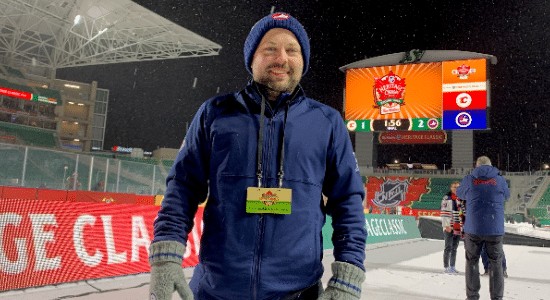Kory Harnum, Community Relations Manager of the Winnipeg Jets and True North Sports + Entertainment, has been with TNSE for three seasons now! His job is to oversee any of the community initiatives that the team takes part in. From organizing toy drives, to visiting schools and raising money for cancer research, Kory Harnum works incredibly hard to bring the Winnipeg Jets closer to the people in the community! Join me in this interview as I learn how Harnum progressed from his interest in becoming a physical education teacher, to his current role in a professional sports league, and to where he attributes his success.
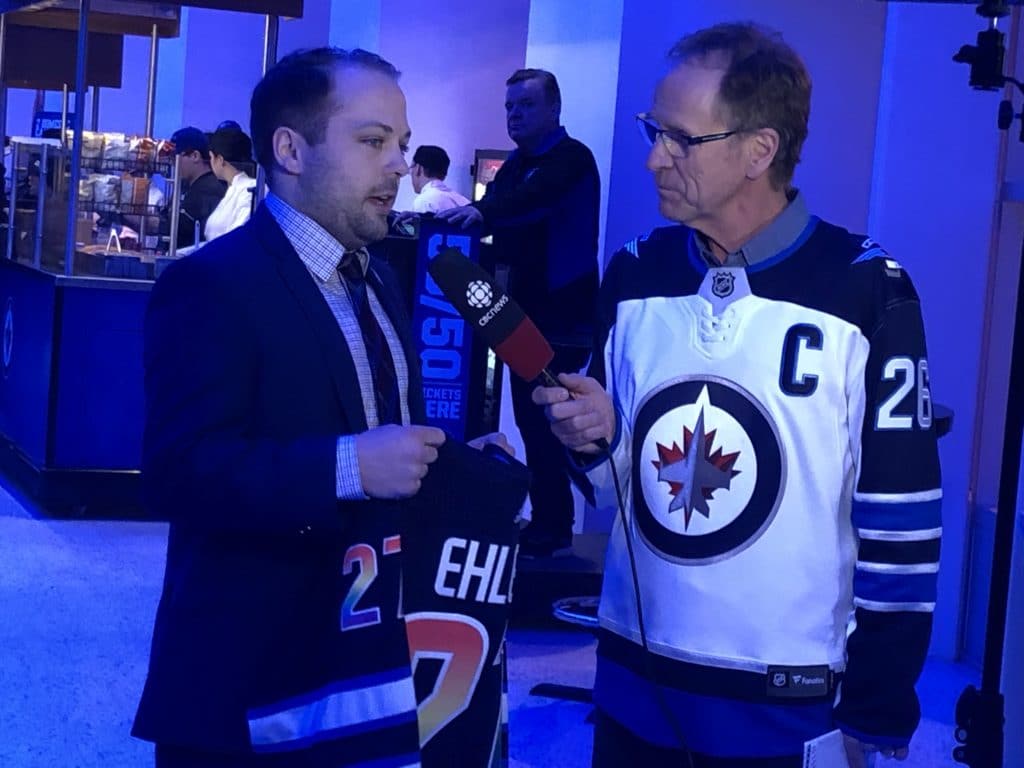
Please note: The interview with Kory Harnum was conducted via a typed conversation. Editing changes were made to make it easier to read while maintaining the voice of the interview.
Tell us about your role as Manager of Community Relations with the Winnipeg Jets and True North Sports + Entertainment.
This is my third season with the Winnipeg Jets and True North Sports + Entertainment (TNSE). I oversee the planning and execution of all the community initiatives that the Winnipeg Jets are a part of. This could be from a social impact/awareness perspective, such as our Christmas toy drive, food drive, our hockey fights cancer campaign, etc. or from a player integrated perspectives, such as the team hospital visits, school visits or post-game meet and greets. I work together with community groups that we partner with through these initiatives to ensure that both sides are making the most of the opportunity.
[showmodule id=”274416″]
What does a typical day look like for you?
Is there such a thing as a “typical day” in professional sports? [laughs] Game days are usually a 12-14 hour workday, which includes final preparations, setting up anything that is needed for execution, meeting with volunteers from community groups when they arrive for the game and ensuring they are in place and comfortable with their duties. Because we partner with a variety of community groups, we want to ensure they are making the most of their experience and together we accomplish the goals they set out to achieve. Duties on a non-game day include planning for future community initiatives that are coming up in the calendar and providing recaps on concluded events

When was the point you realized that you were meant to do this career? Take us through that realization.
Working in professional sports was never a serious thought I had growing up. I played sports throughout my childhood and had a desire to become a physical education teacher. In university, I transferred from a Physical Education degree to a Recreation degree because I realized I wanted to do more with sports than teaching. It was in the final semester of my degree that I did an internship with the St.John’s IceCaps (Winnipeg Jets American Hockey League Affiliate at the time) and had my first taste for working in professional sports. An internship turned into finishing out the season with the team and once the season finished I was offered a full-time position. 6 years later I am still in the industry and loving every minute of it.
[showmodule id=”274431″]
I noticed that you graduated from Memorial University of Newfoundland. Tell us about some areas they don’t teach you at school about working in the sport industry that you’ve picked up in your experience.
As I mentioned earlier, my internship at the end of my degree is the reason I am in professional sports today. The opportunity to learn outside of the classroom and have hands-on experience in the workplace is the most vital learning tool. The sports industry is fascinating because it doesn’t wait for anyone so you have to keep up or risk falling behind. I can’t speak for other job markets but the most important things I have learned from professional sports are time management and handling pressured situations. Time management for me is ensuring I complete what I need to get done. This often means executing one initiative while preparing for another that is approaching while at the same time recapping a completed event.
The most beneficial learning experience I have had to date is through handling high pressured situations and this is as simple as reminding myself that stressing or panicking when searching for a solution will not bring about that solution any easier. It is about taking that extra second to ask the questions needed in the scenario: “Is there another solution? How can we still achieve the end goal by taking a different route?” Understanding that 95% of the time, there is another solution to the problem at hand makes approaching these situations much easier and it is only when you experience those scenarios first hand that you learn.
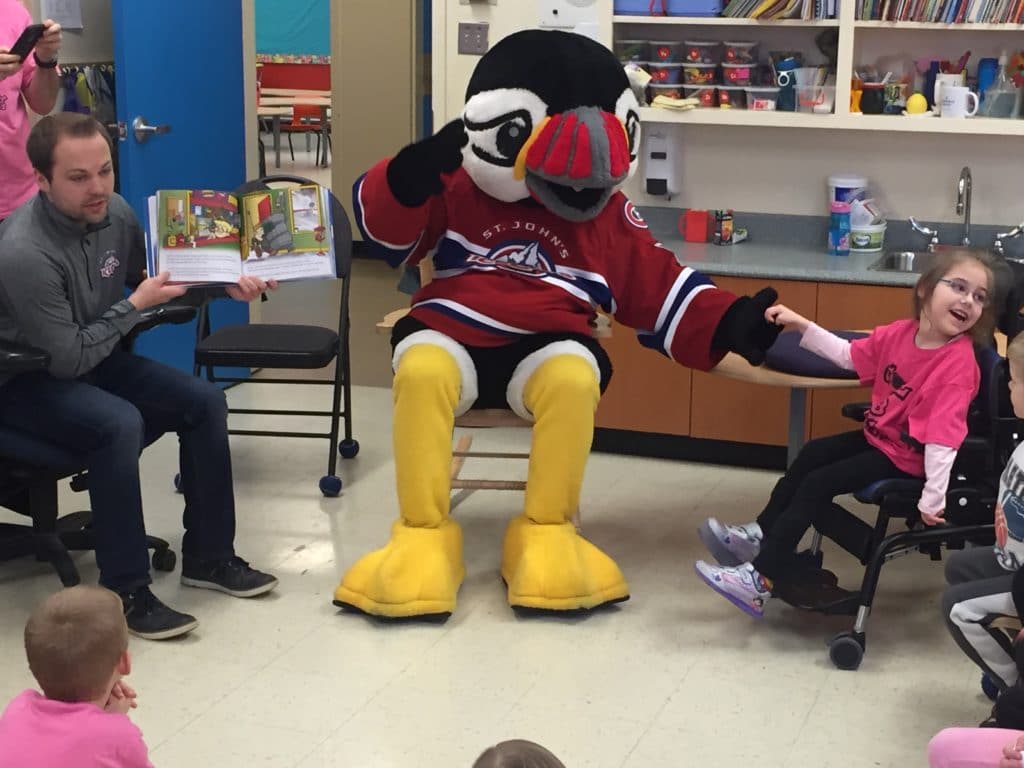
Would you say your path to your current position was quite easy or rather challenging, and can you discuss why?
I wouldn’t describe my path as a rocky road by any means, but I have encountered a challenge or two. My move from Newfoundland to Winnipeg was the result of the American Hockey League team that I was working for relocating from Newfoundland to Winnipeg. TNSE made the decision in 2015 to move their AHL team closer to home and as a result, left St. John’s without a hockey team. At the same time, the Montreal Canadiens farm team needed to relocate until their new stadium was built so St. John’s played host for two seasons. It was when this team left in 2017 that I received a call about an opportunity to work with TNSE again and the timing worked out for me. 3 seasons later and here we are. I am a firm believer that challenges or adversity build character which, when approached the appropriate way, makes you a better person. At the time, these were challenging moments for me but looking but at what I learned about myself and about situations like those helped make me a better person.
What would you include on a list of your top 3 biggest accomplishments (or moments) working in sport?
1 Giving Back
The opportunity to give back to the community on a regular basis.
2 2019 Heritage Classic
Working the 2019 NHL Heritage Classic in Regina.
3 Working With NHLers
Having the opportunity to get to know some of professional hockey’s best players, both on and off the ice.
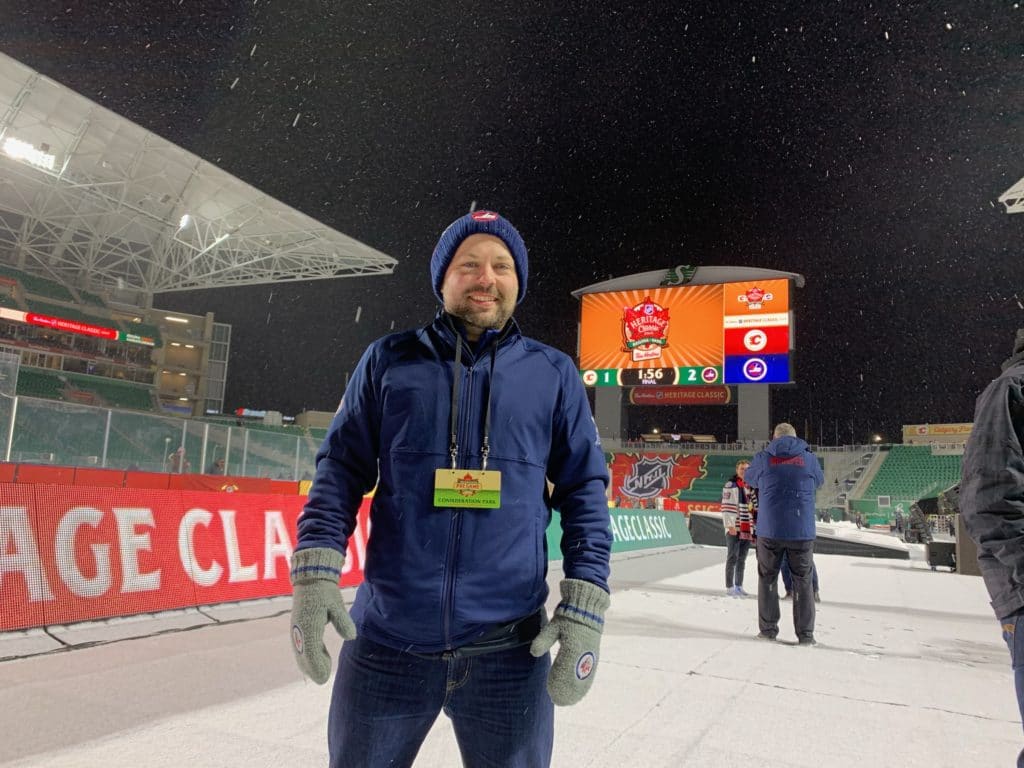
Many people think community relations is a great aspect of the sport industry to work because you get to interact with the players. If you can, talk about this aspect of your role.
Community Relations is an avenue to show that the individuals on our team are more than just hockey players. They are passionate about giving back and making a difference in their community and they understand the platform they have that provides them with that opportunity to do so. To be a part of some of these experiences, like when the players visit local hospitals and to see what it means to the patients who are experiencing difficult medical situations, it often puts things into perspective for the players and those visits become beneficial for both the patients and the players, for two very different reasons.
What is the most impactful situation that you have had in your role to really make a difference to others?
Anytime someone asks the question “What is the most rewarding part about your job?”, for me, it is always about seeing first-hand how the work that we are doing as an organization is benefitting the community. For example, when our Hockey Fights Cancer campaign raises over $100,000 for pediatric clinical trials for a local organization, having the chance to visit the local cancer care agency that benefits from these funds and to see the work they are doing is very impactful for me. To put the work into planning, organizing and executing an event to raise funds, or collect clothes or whatever the fundraiser might be, I always enjoy seeing where it is that our efforts are supporting.
What advice would you give to prospective sport professionals looking to work in sport at a similar level to yourself but just starting off in their career
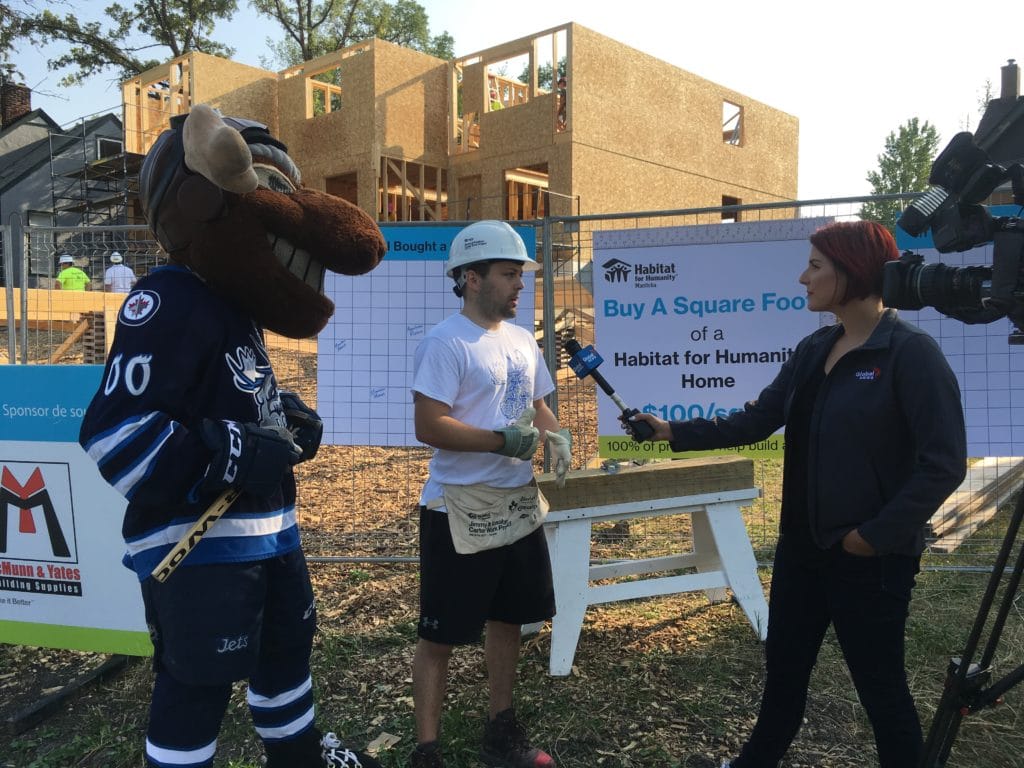
“Work Hard, Keep Perspective, Show Gratitude.”
Understand that getting into the field is tough and it requires a lot of work in areas or positions that aren’t the most glamorous. It is all about starting somewhere and getting your foot in the door. But you have to open that door.
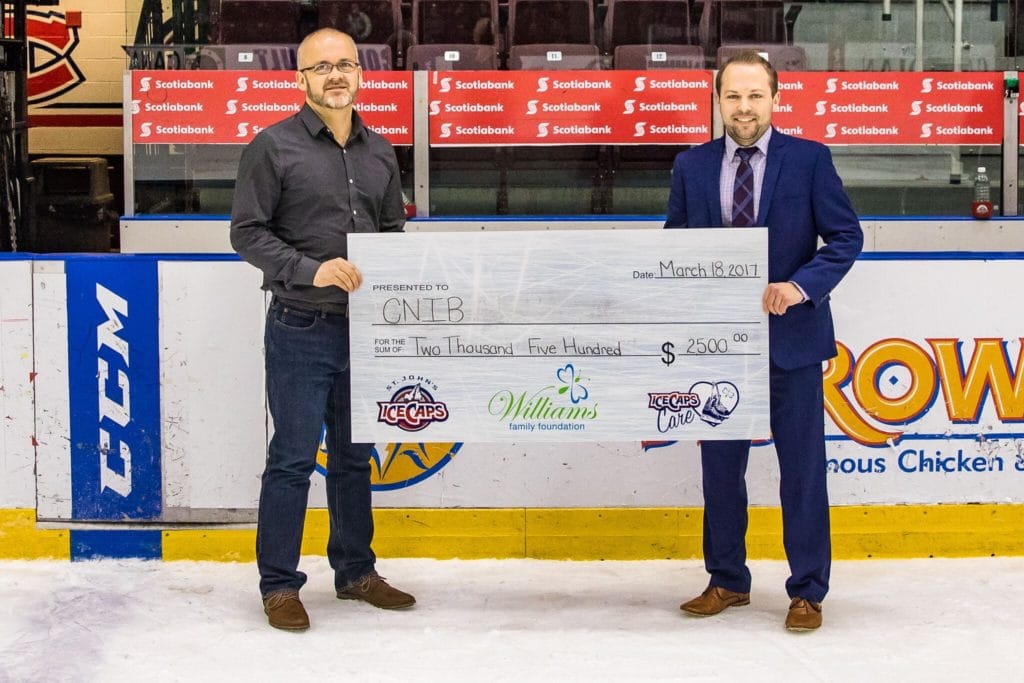
Through this entire process, whether it is 3 months or 3 years, maintain a positive perspective. At times it’s going to be a battle, it will be stressful, but if you put in the work, you will get there.
Show your appreciation whenever you can to those who provide the opportunities to you. Thank those who believe in you and help or have helped you along the way. And not just the director who hired you. It’s about showing it towards those you work alongside. Thanking the operations staff who set up your collection bins, the production team that came along to take photos and video of a player appearance. It is simple gestures that go a long way.
[nnr_optin_fire id=”17″]
Stacey’s Final Thoughts
As a child, Kory Harnum always had the desire to be a physical education teacher, but as his interests began to change, it didn’t take him long to realize that he wanted to do more with sports than just teaching. Once he got his first taste of professional sports as an intern with the St. John’s Ice Caps, he was hooked and has never left the professional sporting industry since. To this day, Kory Harnum loves his career just as much as he did day one, and we are thankful for the contributions that both he and the team make to the community that surrounds them.
Kory Harnum
Interview by Stacey Leawood
Posted November 28, 2019 in Industry Profiles

